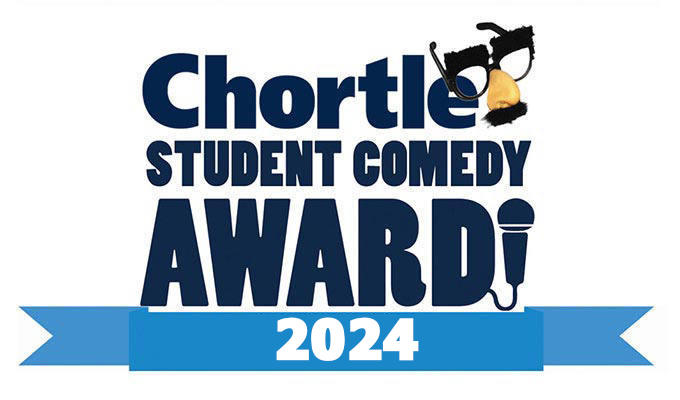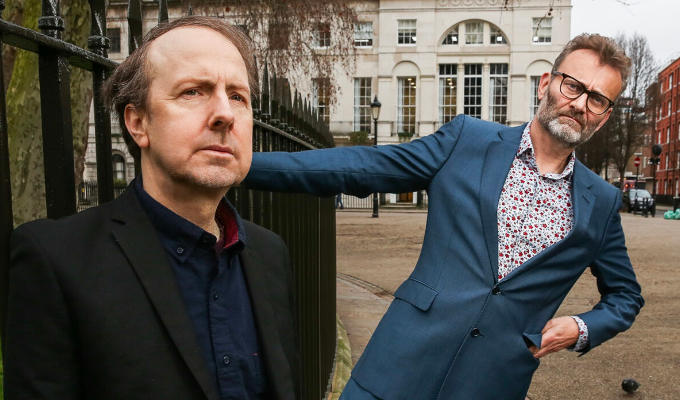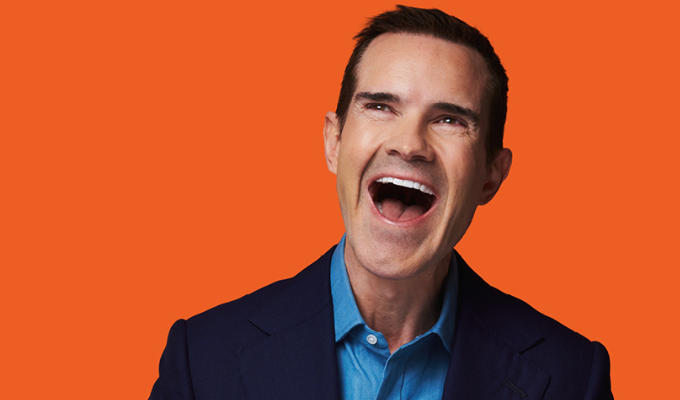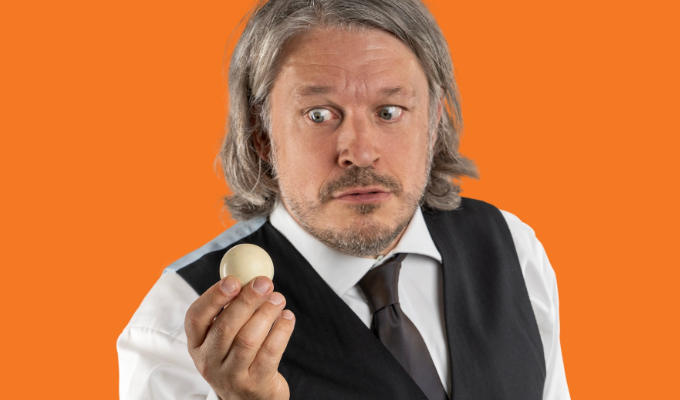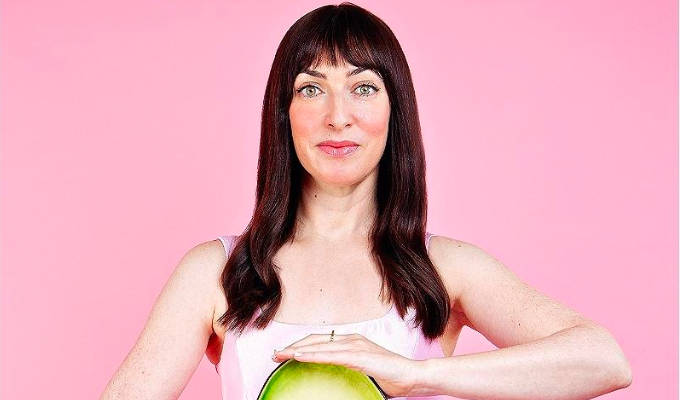
Sometimes the only thing comedians have is one another
Liz Guterbock has an etiquette guide to helping stand-ups be supportive
Whether we like to admit it or not, comedians compete with one another. Outside of the numerous, nerve-racking official comedy competitions, some carry a competitive spirit over to their regular gigs and onto social media. It can be difficult to ignore peers posting about their triumphs, getting an agent, or gaining huge followings.
Like most things in life, comedy is not a meritocracy. When one comedian reaches the heights, others are quick to deem them ‘not ready’ and think ‘why not me?’. Most often, this question is asked privately, but sometimes it is asked very publicly. Yes, we know, ‘Brian’, the ‘industry’ just doesn’t ‘get you’. But maybe Twitter will?
One way out of this jealous abyss is to ask other comedians how they do what they do, and for comedians to readily share their tips and tricks with each other. Deborah Frances-White and Marsha Shandur’s book Off The Mic made me realise that no one has an exact formula for how to do comedy.
Every comedian in that book made it up as they went and got pointers from other people. Okay, if none of us truly know what we’re doing, is ‘how do you do what you do’, the best question to ask your peers? It may not seem so, but conversely, asking someone you admire how they do it might set you off in a new direction or provide the missing piece to your set.
We’d all like to see change in the comedy industry, and I, perhaps naively, believe that generosity of spirit amongst comedians is one way to prompt some change.
Being new to the circuit is a lot like your first year at secondary school. You navigate a lot of tough social situations where you don’t know anyone (gigs), high-stakes, school-wide events (comedy competitions) and bullies with big egos but low self-esteem (comedy bros who insist on asking you how many gigs you’ve done every time you see them).
These things have nothing to do with the creative side of stand-up and they’re exhausting. But what also starts to happen is your year group starts telling each other which gigs are good, which teachers are helpful, and techniques for getting out of another conversation with Brian about how he’s done more gigs than you (the sentence ‘Oh, I didn’t enter the Big Dick Competition this year – who won?’ helps!)
Yes, the business of the business is often what brings us down. We must constantly self-start projects, navigate gigs, find out how to get paid, how to (or whether to) create online content without damaging our mental health and eventually figure out how to get an agent, all while trying to get better at comedy and juggling some pretty serious day jobs.
There are, believe it or not, some people who want to do comedy without the goal of getting famous. They do it because they want to grow a skill. But somehow, we end up thinking we all have the same aspirations as everyone else. It tends to turn us against one another when the real enemy is self-doubt, lack of access to industry information, unaffordable educational and production costs, lack of transparency around (or complete lack of) pay, and burnout.
Comedians sharing tips is one way to build community and increase equality. Of course, there’s no guarantee that the information someone shares will result in the same outcome for you as it did for them, but at least it levels the playing field somewhat.
That’s one major benefit of the rise in comedy courses – instant community. And even if you haven’t taken a comedy course, you’ll have your comedy cohort – those people you regularly gig with. They’ll be with you as you navigate your first 10-minute spot, your first pro spot, your first hour. And they’re likely experiencing the same doubts and fears as you. Yes, even Brian.
As I approach my Edinburgh debut, I’m keenly aware of all the people who’ve helped me since I started. Like Catherine Bohart who, when I asked, gave me advice about doing my first split bill in Edinburgh. One of the most helpful things she said was to define what ‘success in Edinburgh’ meant to me and make achievable goals like ‘increase your confidence with crowd work’ rather than an arbitrary goal with an outcome I have no control over like ‘get good reviews’ or ‘Make Cowgate smell good.’ Oh - this is a good time to say it’s important to credit people when they help you. Thanks Catherine!
The industry is made up of people with key information and a vague perception of what they want. It’s also made up of comedians who want that information to ‘get ahead’. We all know comedians who can’t talk about anything else aside from why it stinks that ‘so-and-so got on TV,’ why it’s undeserved and all the stuff which will eventually rot your insides.
But there are other people who will, if asked in a kind way, volunteer information about how they got where they are simply because someone else did it for them and they want to pay it forward.
Of course, how you approach people for advice matters as much as why you approach them. DMing a fellow comedian at 2:45am with ‘GIVE ME YOUR AGENT’S CONTACT INFO, I NEED AN AGENT’ isn’t going to go well.
As a rule, don’t be overly familiar, don’t make demands, and don’t expect a reply. Instead, think about how you’d like to be approached for information. Try sending a message at a normal time (weekdays between 10am and 6pm, Brian) and say something like, ‘I really love your storytelling/setups/your poster/how you did X. If we gig together again, would you be willing to have a quick chat, or a voice note exchange about your process?’
It can result in some insights, and crucially, if it’s a male comic approaching a female comic, it can hopefully avoid any creepiness since you’ve not asked to meet up in person outside a gig context. And maybe the next time you see them at a gig, you’ll have a little more fellowship with them.
Edinburgh is fast approaching. We all wait with bated breath to see which comedian is going to post something like ‘YET AGAIN, the industry has turned its back on me even though I am THE BEST COMEDIAN EVER. LIFE IS SO UNFAIR’ during the Fringe.
But maybe instead of ignoring him (it will be Brian) and making fun of him (no really, it will Brian), we could ask if him if he’s okay, and, if he’s open to some support, we could suggest a helpful book, or a mentor we know who helped refocus us when everything felt terrible and pointless.
Be generous with the information you have when you meet joyful newbies or jaded long-termers. I implore comedians to help each other out. It’s tough out there and it would be nice if we all had the same leg up – but we don’t. However, we do have each other.
Oh, and if I could give Brian one tip? Make ‘gig quality over gig quantity’ a mantra.
• Liz Guterbock will be performing her Edinburgh Fringe show Geriatric Millennial at Pleasance Courtyard at 4.15pm from August 2 to 27.
Published: 10 Jul 2023

